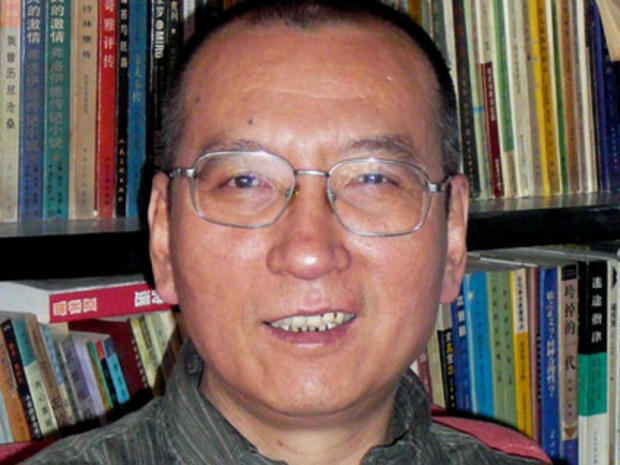Liu Xiaobo's Nobel Prize Unwelcome News for China
Last month, as word spread that the Norwegian Nobel Institute was considering the Nobel Peace Prize to Chinese dissident Liu Xiaobo, the head of the institute said he had been approached by a senior Chinese official with a message: Give Liu the prize and your country will suffer the consequences. (Potentially at stake: A key bilateral trade deal.)
Today, to the consternation of Chinese officials and the satisfaction of human rights advocates, they announced that they had done so anyway.
Liu was sentenced last Christmas for his involvement with Charter 08, a petition circulated last year that calls for greater freedoms and democratic reforms in China. He had been in and out of prison before (including for his involvement in the Tiananmen Square protests, where he helped convince students to leave the square), but this was the harshest punishment he had yet received: 11 years for "inciting subversion of state power."
The sentence reflected a decision by the Chinese government to make an example of Liu, according to Minky Worden, Director of Global Initiatives at Human Rights Watch. She noted that Liu is by no means the only human rights advocate in jail in China today.
Liu is "modest, pragmatic, and because of that he has been appealing to people in China," said Worden, the author of the book China's Great Leap, to which Liu contributed a chapter. The award, she said, shines a light on the fact that China's "human rights conditions have deteriorated markedly" in the last two years.
It will also potentially introduce Liu to millions of Chinese citizens who may not have heard of him. Though Chinese media isn't free - the aggressive Internet filter in the country is known as "the great firewall" - the Internet has proven impossible for the government to censor completely.
While many Chinese do not know how to get around the firewall, a tech savvy minority - think 25-year-old PhD students - do. Chinese citizens are also on Twitter and Twitter clones, and even if information they post gets deleted quickly, it still gets seen.
Consider Liu's Charter 08, modeled on Charter 77 that called for reform in then-Czechoslovakia and helped prompt the Velvet Revolution. (Among those pushing for Liu to get the peace prize this year was Czech dissident-turned-president Vaclav Havel.) The document has been posted and removed from the Internet several times, but more than 10,000 people were nonetheless able to sign on.
The verdict against Liu last year directly addressed this: "He wrote the documents and used the Internet to publish them in order to slander and urge other people to overthrow our country's democratic dictatorship and our socialist system," it said.
As for the Charter itself, among its arguments is that "we should end the practice of viewing words as crimes." It also calls for a new Constitution guaranteeing human rights and the open election of public officials.
In a statement today, President Obama - last year's peace prize winner - called for Liu's release.
After stating that China has made progress, he said that "this award reminds us that political reform has not kept pace, and that the basic human rights of every man, woman and child must be respected."
Human Rights Watch's Worden suggested the prize and the attention it brings to China's human rights record could "strengthen the hands of moderates" at the expense of the hard-liners currently in charge.
"The Chinese people are fighting this fight in China with or without the United States and with or without the Nobel committee," she said. "The leading reformists in China today are paying a very high price."

